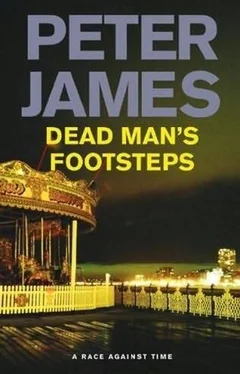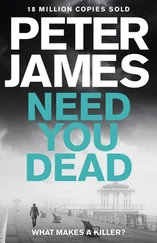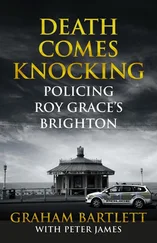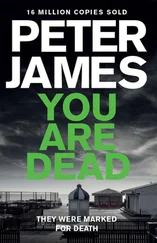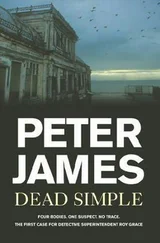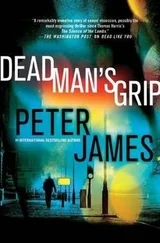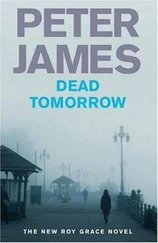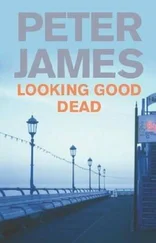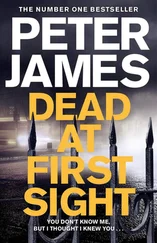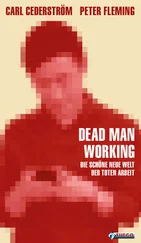Grace suddenly lost all interest in his food. ‘Tell me more.’
‘She was depressed, in a terrible state after Ronnie died. He left her in a right old mess, financially like. The mortgage company took the house and the finance people took just about everything else, except for a few stamps.’
‘Stamps?’
‘Yeah, they was Ronnie’s thing. Traded them all the time. Told me once he preferred them to cash, more portable.’
Grace thought for a moment. ‘I thought I’d read that 9/11 victims’ families got quite big compensation payments. Didn’t she?’
‘She never said nothing about that. She sort of became a recluse, you know, just kept her distance. Like retreated into a shell. When they took everything, she moved into a little rented flat down Montpelier Road.’
‘When did she die?’
He thought for a moment. ‘Yeah. It was November – 9/11 happened in 2001, so this would have been November 2002. Christmas was coming up. Know what I mean? Difficult time, Christmas, for some people. Jumped overboard from the ferry.’
‘Was the body found?’
‘I dunno.’
Grace made some notes, while Biglow ate. He picked at his own meal, his concentration now elsewhere. One wife sets off to America and ends up in a storm drain in Brighton. The second jumps off a cross-Channel ferry. A lot of questions were now filling his head. ‘Did they have children?’
‘Last time I saw Ronnie he said they was trying. But they was having fertility problems.’
Grace thought some more. ‘Other than you, who were Ronnie Wilson’s closest friends?’
‘We wasn’t that close. We was friends, but not close. There was old Donald Hatcook – Ronnie was with him, apparently, in his office on 9/11. Up in one them towers of the World Trade Center. Donald made it big, poor bastard.’ He thought for a moment. ‘And Chad Skeggs. But he emigrated, didn’t he, went to Australia.’
‘Chad Skeggs?’
‘Yeah.’
Grace remembered the name; the man had been in trouble years back, but he couldn’t recall why.
‘See, they’ve all gone. It would have been the Klingers here, I s’pose. Yeah, Steve and Sue Klinger, know them? Live in Tongdean.’
Grace nodded. The Klingers had an ostentatious house in Tongdean Avenue. Stephen had been, as the euphemism goes, a person of interest to the police for as long as Grace had been in the force. It was a widely held view that Klinger, who had started life as a car dealer, had not made his money legitimately and that his nightclubs, bars, coffee houses, student rental properties and moneylending businesses were all money-laundering fronts for his real business: drugs. But so far, at least, if he was a drugs overlord, he ran a tight ship and had ensured nothing could ever be traced back to him.
‘Ronnie and he started out working together,’ Biglow continued. ‘Then they got into trouble over a bunch of clocked cars. I don’t remember what happened exactly. The business disappeared overnight – the garage burned down with all the records. Sort of convenient. There weren’t no charges never brought.’
Grace added Steve and Sue Klingers’ names to the list of people to be interviewed by his team. Then he cut off a corner of fried bread and dunked it in an egg.
‘Terry,’ he said, ‘what was your take on Ronnie?’
‘How d’yer mean, Mr Grace?’
‘What kind of a bloke was he?’
‘Fucking psycho,’ Jimmy chipped in suddenly.
‘Shut it!’ Biglow turned on him. ‘Ronnie wasn’t no psycho. But he had a temper, I’ll grant you that.’
‘He was a fucking psycho,’ Jimmy insisted.
Biglow smiled at Grace. ‘He was a little sick in the head at times, you know, sort of his own worst enemy. He was angry at the world cos he wasn’t succeeding, not like some of his friends – know what I mean?’
Like you? Grace wondered privately. ‘I think so.’
‘Know what my dad said about him once?’
Grace, chewing on a piece of fatty sausage, shook his head.
‘He said he was the kind of bloke who could follow you in through a turnstile and come out in front of you without having paid!’ Biglow chuckled. ‘Yeah, that was our Ronnie all right. God bless his soul!’
12 SEPTEMBER 2001
Ronnie was feeling a whole lot better now that he had money in his pocket again. In the left-hand pocket of his suit jacket, to be precise. Holding folding , he liked to call it. And he kept his left hand in there, holding the folded wad of crisp new one-hundred-dollar bills tightly, never once letting go, all the way back in the L-Train from midtown Manhattan to Brighton Beach station, where he got off.
Still without removing his hand, he walked the short distance back to Mail Box City and stashed five thousand and six hundred of those dollars safely away in his deposit box. Then he walked back along the street until he found a clothing store, where he bought a couple of white T-shirts, a change of socks and underpants, a pair of jeans and a lightweight bomber jacket. A short distance further along he went into a souvenir store and bought himself a black baseball cap emblazoned with the words brighton beach. Then he popped into a sports outfitters and bought a cheap pair of trainers.
He stopped at a stall to pick up a hot corned beef sandwich with a gherkin the size of a small melon and a Coke for his lunch, then returned to his rooming house. He punched on the television and changed into his new kit, putting all his old clothes into one of the plastic bags his new gear had come in.
He ate his sandwich watching television. There wasn’t much that he hadn’t seen on the news already, just recaps, images of George Bush declaring his War on Terrorism, and comments from other world leaders. Then images of joyous people in Pakistan, jumping up and down in the street, laughing, proudly displaying crude, anti-American banners.
Ronnie was actually feeling rather pleased with himself. His tiredness had gone and he was on a high. He had done something brave: he had ridden into the war zone and back out again. He was on a roll!
He finished his meal, then scooped up the bag containing his old clothes and headed out of the door. A short distance down the street, he crammed the bag into a stinking garbage can that was already nearly full to the brim with rotting foodstuff. Then, with a spring in his step, he made for the Moscow bar.
It was just as empty as yesterday, but he was pleased to see that his new best friend, Boris, was sitting on what looked like the same bar stool he had sat at yesterday, cigarette in hand, mobile phone pressed to his ear and a half-full bottle of vodka in front of him. All that was different was his T-shirt, which today was pink and carried the legend, in gold lettering, Genesis World Tour.
The same shrimp of a barman was there, wiping glasses with a dishcloth. He acknowledged Ronnie with a nod of recognition.
‘You back,’ he said in his broken English. ‘Thought you maybe gone to help.’ He pointed at the television screen. ‘They needing volunteers,’ he said. ‘They needing people help dig bodies out. I thought maybe you gone to do that.’
‘Maybe,’ Ronnie said. ‘Maybe I will do that.’
He hauled himself on to the bar stool next to his friend and waited for him to finish his call, which sounded like some kind of business deal, then slapped him on the back. ‘Hey, Boris, how you doing?’
Ronnie received a resounding thump in return, which felt like it had dislodged several of his fillings.
‘My friend! How you doing? You found the place last night? It was OK?’
‘It was fine.’ Ronnie leaned down and scratched a particularly itchy bite on his ankle. ‘Terrific. Thank you.’
Читать дальше
